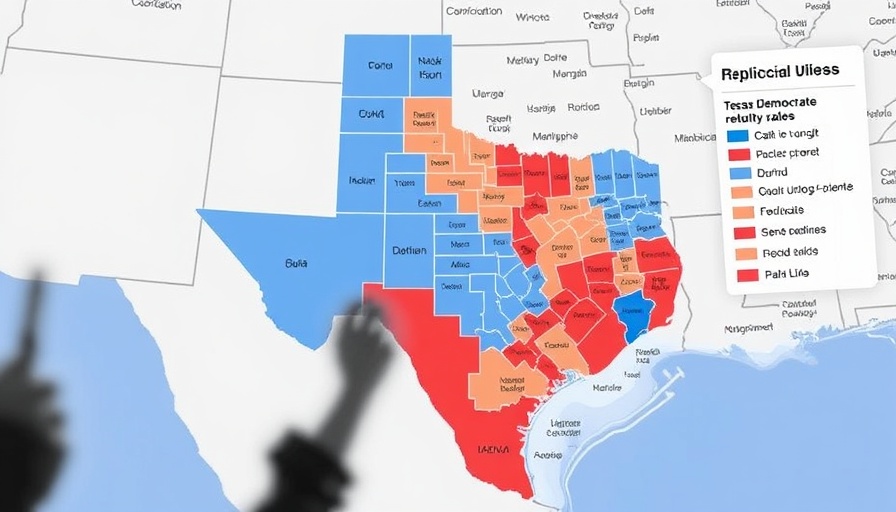
A Looming Ban: What It Means for Texas Cannabis Shops
The colony-based cannabis shop, Zar Wellness, is on the frontline as the Texas government considers a statewide ban on THC products. With its exemption set to be abolished, veteran co-owner Razia Qureshi-Shalami has gone public, urging Governor Greg Abbott to veto SB 3, the bill that threatens to shutter her business and potentially devastate the burgeoning cannabis industry across Texas.
The Human Cost Behind the Industry
Founded in 2019, Zar Wellness was established with a mission to serve veterans who often struggle with mental health issues. Razia shared the alarming statistic that twenty-two veterans commit suicide each day. The shop not only offers products infused with THC but also provides vital support to those in need, including significant discounts for veterans. Razia emphasizes that while they proudly serve veterans, their customer base includes many civilians who rely on cannabis for relief from various ailments.
Impact of SB 3: A Universal Concern
The statewide THC ban would not only affect shops like Zar Wellness but would also have a broader impact on numerous consumers who depend on cannabis for pain management and emotional stability. As Razia explained, “In a second, something is signed, and it could wipe out an industry that’s booming in Texas.” Many Texans are concerned, fearing for their access to the medication that has brought them relief from PTSD, chronic pain, and other debilitating conditions.
The Call for Regulation, Not Ban
Interestingly, while Razia agrees on the importance of enforcing regulations to prevent minors from accessing THC products, she firmly opposes the outright ban proposed by SB 3. “Let’s sit down at the table,” she suggests, advocating for the existing regulations to be enforced rather than creating new, sweeping laws. Many cannabis advocates agree, pushing back against the notion that a total ban is the solution. Instead, they emphasize the necessity of responsible regulation in a growing industry.
The Debate: Safety vs. Accessibility
The challenge for lawmakers lies in balancing public safety concerns with the rights of those who use THC responsibly. The proposed ban aims to restrict the sales to minors and clamp down on marketing practices, but the repercussions for legitimate businesses and consumers are severe. With existing structures already in place, advocates argue that enforcing compliance is far more beneficial than an outright prohibition.
The Future of THC in Texas: A Critical Crossroads
The situation creates a critical junction for Texas cannabis users and businesses. As lawmakers deliberate over SB 3, the future of the cannabis industry in Texas hangs in the balance, with significant implications for countless residents. Community members, advocates, and business owners must wait anxiously for Governor Abbott’s decision, which could either bolster the industry or lead to its collapse.
Take Action: Your Voice Matters
The ongoing debate surrounding the THC ban illustrates the importance of civic engagement. Residents are encouraged to speak out, contact their representatives, and express their thoughts on this critical issue affecting their access to vital health services. It is a reminder that every voice counts in shaping the future of cannabis regulation in Texas.
 Add Row
Add Row  Add
Add 




Write A Comment